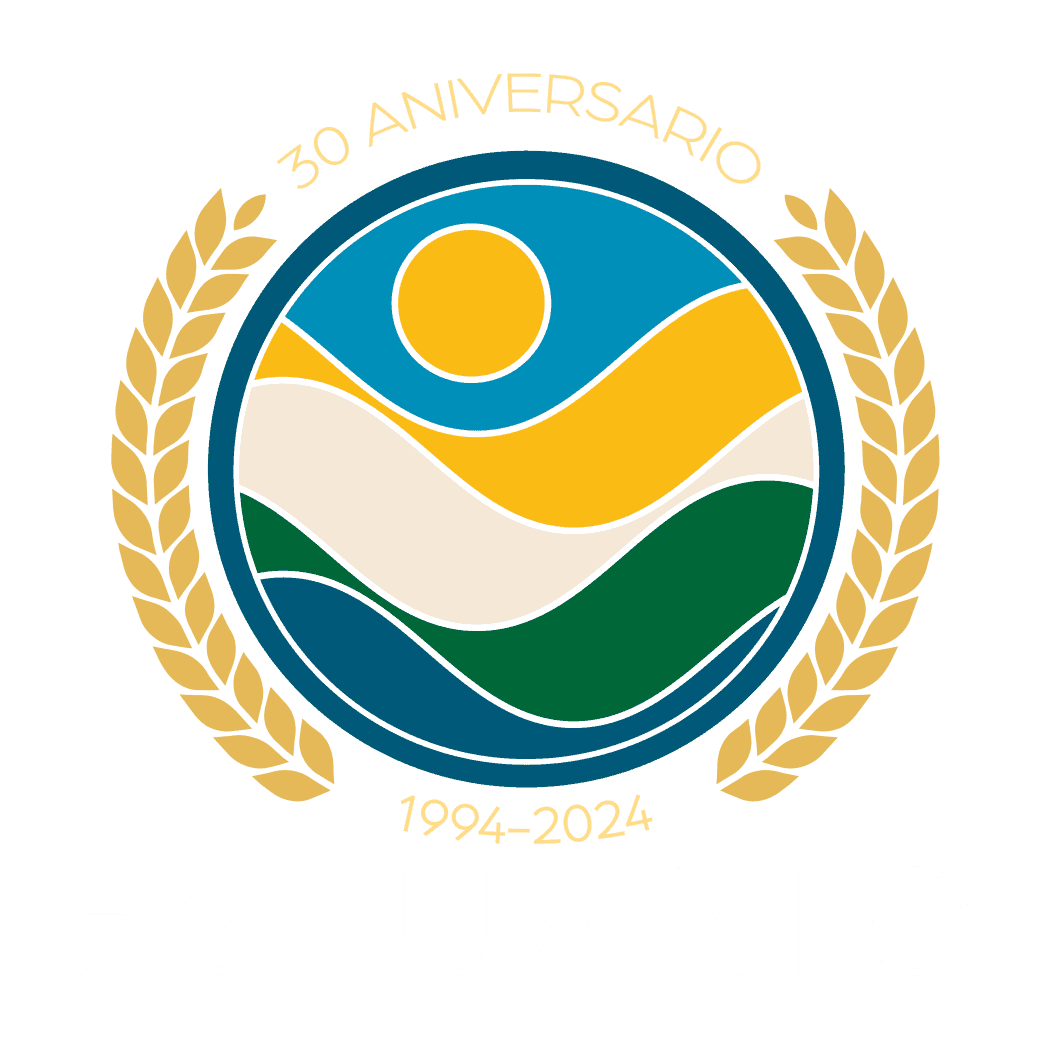Civil Engineering and Surveying Auditorium, at the University of Puerto Rico, Mayagüez (Virtual broadcast will be available)
March 9-11, 2022
Focus
Watershed management. To emphasize issues that will help watershed managers and custodians implement improvement actions, thus reducing erosion and sedimentation, as well as point and non-point sources or contamination.
Concept
To present a series of panels led by questions or topics:
Planning & Management Panel
- How is a management plan established and how can mitigation measures be incorporated?
- What are the challenges of implementing a management plan and who has to solve them?
- Governance structures. How are they developed? Examples in PR? Learned lessons? Suggestions or suggested governance platform.
Public Policy Panel
- Are changes in public policy necessary to facilitate river basin management?
- How can public policy be used to implement adequate governance structures?
Speakers
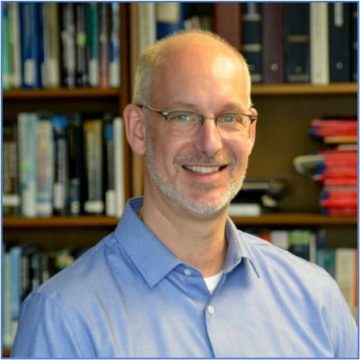
Tim Dekker, PHD, PE
President, LimnoTech
Tim Dekker, PHD, PE, is the President of LimnoTech. Tim is an Environmental and Water Resources Engineer with expertise in the river, lake, and estuary remediation and restoration. Tim has led scientific studies and technical projects in natural and urban water systems throughout North America, describing the dynamics of surface water, sediments, and groundwater systems; analyzing and mitigating the effects of urban flooding, analyzing contaminant fate and transport; and applying contaminant forensic techniques to understand the history of contaminated sites. He has contributed to many successful national design competitions and projects focusing on the restoration and revitalization of urban waterfronts and works around the United States and Canada to advance the science and practice of urban water management. Tim works at LimnoTech’s Corporate Headquarters in Ann Arbor, Michigan.
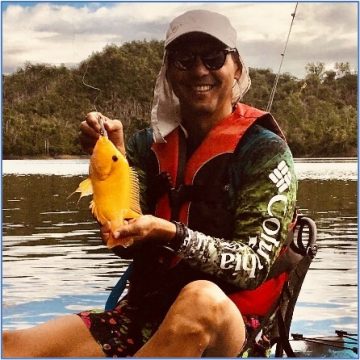
Miguel A. GARCÍA BERMÚDEZ, PhD
Landscape Conservation Scientist, Applied Science/Migratory Birds
US Fish and Wildlife Service
Miguel A. García Bermúdez holds bachelor’s and master’s degrees in Natural Sciences from the University of Puerto Rico and a Doctoral Degree in Natural and Environmental Resources from the University of Michigan (2004) with a specialty in terrestrial ecosystem management. He worked in the Department of Natural and Environmental Resources of the Government of Puerto Rico (1991-2016), an agency in which he held various positions from wildlife biologist to Assistant Secretary of Natural Protected Areas and Biodiversity.
In August 2016, he became Coordinator of the Caribbean Landscape Conservation Cooperative in the Applied Science Unit of the US Fish and Wildlife Service. In addition to these positions, he has been awarded various recognitions and designations, the most significant being: Representative of Puerto Rico in the Technical Group of the Caribbean Corridor Initiative (United Nations Environment Program), Affiliated Researcher at the Center for Applied Tropical Ecology from the University of Puerto Rico, President of the Puerto Rico Chapter of the American Fisheries Society and was recently elected as Second Vice President of the American Fisheries Society (August 2021).
E-mail: [email protected]
Web: https://www.fws.gov/southeast/usfws-southeast-region-leadership-directory/
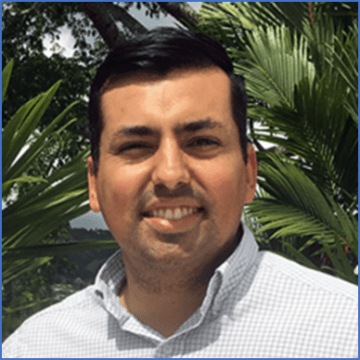
Luis A. CRUZ ARROYO
Director, Caribbean Area
Natural Resources Conservation Service
Luis A. Cruz-Arroyo joined the USDA Natural Resources Conservation Service (NRCS) Caribbean Area on October 28, 2019, as its director. Luis is from Mayagüez, PR, and graduated from the University of Puerto Rico with a bachelor’s degree in Animal Science. Luis began his professional career at Pioneer Seedlings and provided consulting services for an environmental company in the management of by-products for agricultural uses.
In 2010, Luis began his USDA-NRCS career as a Soil Conservationist in Baldwin County, Alabama, and continued his career as a District Conservationist in various Alabama counties. In 2013, Luis assumed the position of Area Resource Conservationist in the Western Alabama Area, where he provided technical and programmatic guidance to seventeen NRCS field offices and one Tribal Liaison office. Luis was also the chair of the Civil Rights Advisory Committee and served as Manager of the state Hispanic Special Emphasis Program and Southeast Region Representative for the NRCS National Organization of Hispanic Professional Employees.
In 2017, Luis became Assistant State Conservationist for Field Operations in Northwest Iowa, where he managed area resources to help accomplish the agency’s mission in Iowa. Luis also served in detail in the Caribbean Area of NRCS from October 2018 to March 2019, assisting as Emergency Protection Program (EWPP) Coordinator after Hurricanes Irma and Maria. In September 2019, Luis was selected as the director of the NRCS Caribbean Area.
E-mail: [email protected]
Web: https://www.nrcs.usda.gov/wps/portal/nrcs/main/pr/contact/state/
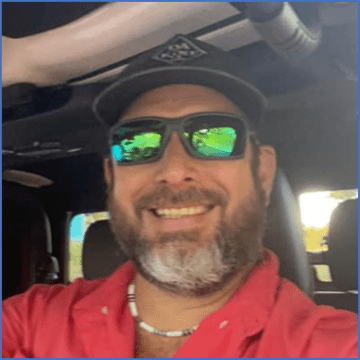
Mario RODRÍGUEZ, BS
State Resources Conservationist, Caribbean Area
Natural Resources Conservation Service (NRCS)
Mr. Rodriguez has sixteen years of experience with the US Department of Agriculture’s Natural Resources Conservation Service (NRCS). He is now the State Resources Conservationist for the Caribbean Area of this agency, working for the Division of Ecological Science providing technical assistance for field offices and their partners. Mario plays a key role in completing the NRCS goals, recommending actions concerning soil, water, air, plants, animals, and human-energy relationships (SWAPA+H+E). As a State Resource Conservationist, he has provided leadership to safeguard technical competence at all levels, including for conservation planning and implementation.
He started with the NRCS in 2006 in North Dakota as a Soil Conservation Technician and Agronomist before joining the Holden, Massachusetts office in 2009. In 2010 he moved to the Caribbean Field Operations office where he has served various positions until being named State Resource Conservationist in 2019.
E-mail: [email protected]
Web: https://www.nrcs.usda.gov/wps/portal/nrcs/main/pr/contact/state/
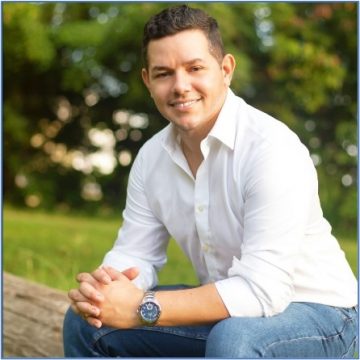
Alberto MERCADO VARGAS, MS
Puerto Rico Program Manager
The Nature Conservancy, Caribbean Division
Alberto Mercado is the Puerto Rico Program Manager of The Nature Conservancy (TNC). Alberto provides technical leadership and support to establish the Conservancy as a major conservation partner in Puerto Rico. Alberto is in charge of defining marine biodiversity conservation priorities in the field and developing key partnerships with public and private organizations to identify and resolve technical issues and widely communicate best coastal-marine solutions fisheries practices.
Alberto came to TNC from the Department of Natural and Environment Resources in Puerto Rico, where he served as Special Assistant to the Secretary and Acting Director of the Bureau of Natural Protected Areas and Forest Service. He has over 15 years of experience supervising and managing environmental conservation programs in the Caribbean region, working with several federal agencies and relevant NGOs in Puerto Rico. Alberto is a biologist with a Bachelor’s degree from The University of Puerto Rico and a Master of Science from Loyola University in New Orleans.
E-mail: [email protected]
Web: https://www.nature.org/en-us/
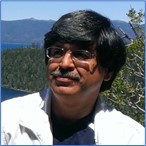
Dr. Walter F. SILVA ARAYA
Director
PR Water Resources and Environment Research Institute (PRWRERI)
Dr. Walter Silva-Araya has more than 23 years of experience in teaching, research and consulting in the field of Hydraulic and Hydrological Engineering. At the University of Puerto Rico – Mayagüez Campus, he has held the following positions: director of the Center for Research and Development of the University of Puerto Rico at Mayagüez, director of the Department of Engineering in Sciences and Materials, Associate director of the Hemispheric Cooperation Center, director of the Fluid Mechanics Laboratory of the University of Puerto Rico and associate director of the Puerto Rico Environmental and Water Resources Research Institute (PRWRERI) from 1995 to the present. He is currently a professor in the Department of Civil Engineering and Surveying at the UPR – Mayagüez University Campus.
His research areas include hydraulic transients, hydraulic modeling of pipeline systems, river and canal models, stormwater systems, erosion studies, and sediment transport. In the bioengineering area, he worked on erosion models and natural revetments to prevent sedimentation in natural channels. As a private consultant he has carried out Hydrologic/Hydraulic studies, hydrodynamic studies, and bridge scour and sediment transport studies using a wide variety of proprietary and commercial models.
He regularly offers courses for the Puerto Rico Transportation Technology Transfer Center on storm sewer system design, hydrological studies, erosion control, and bridge scour. He often reviews for the Journal of Hydraulic Engineering and has written manuals and guides for academia and government agencies. He is a member of the College of Engineers and Surveyors of Puerto Rico (CIAPR), the American Society of Civil Engineers (ASCE), and the International Association for Hydraulic Research (IAHR).
E-mail: [email protected]
Web: http://prwreri.uprm.edu/about.php
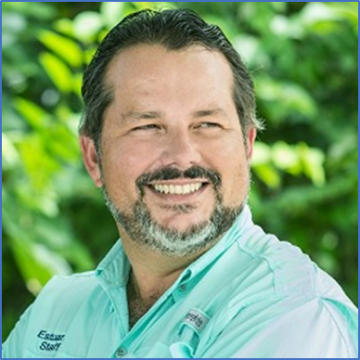
Jorge F. BAUZÁ ORTEGA, PhD
Scientific Director
San Juan Bay Estuary Program
Dr. Jorge Bauzá-Ortega is the scientific director of the San Juan Bay Estuary Program, where he leads the technical-scientific programs for water quality, restoration and improvement of coastal ecosystems, and climate change, among others. He has a Ph.D. in Marine Sciences from the University of Puerto Rico, Mayagüez Campus. He has taught courses as a lecturer and assistant professor in the Department of Marine Sciences of the University of Puerto Rico, Mayagüez Campus and the Medical Sciences Campus of the University of Puerto Rico. He has over fourteen years of professional experience in aquatic and ecological sciences, water quality monitoring and data analysis, restoration, enhancement, and rehabilitation of coastal ecosystems, as well as biotic sampling and ecological measurements.
His work has earned him important distinctions, including the USEPA Environmental Quality Award 2008, for his mangrove restoration project, and the U.S. Coral Reef Task Force Outstanding Public Awareness & Education Award, for his work with underwater corals and artificial reefs. In addition, his passion for academia and science has led him to publish several articles of his authorship in magazines, books, and editorial columns. He has also been a science editor for renowned publishing houses, such as Ediciones SM and Santillana Puerto Rico. He holds a Qualified Environmental Professional credential from the Institute of Professional Environmental Practice.
E-mail: [email protected]
Web: https://estuario.org/dr-jorge-bauza-ortega-2/
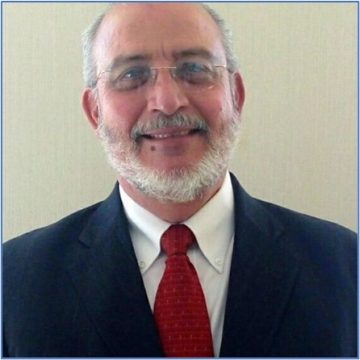
Ismael PAGÁN TRINIDAD, Prof.
Director
Coastal Resilience Center & Department of Civil Engineering and Surveying – UPR Mayagüez
E-mail: [email protected]
Web: https://www.uprm.edu/inci/crc-espa-2/
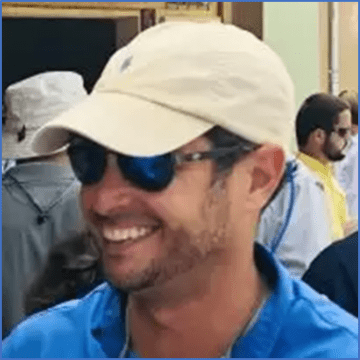
Joel VEGA, BS
President of the State Association for Puerto Rico
National Association of Conservation Districts in Puerto Rico (NACD-PR)
E-mail: [email protected]
Web: https://www.nacdnet.org/state/puerto-rico/
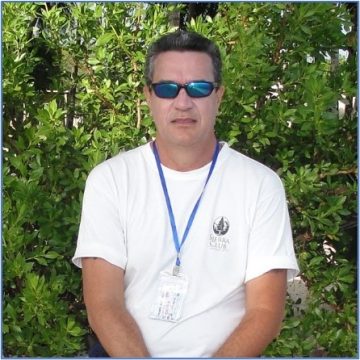
Raúl SANTINI RIVERA, BS
Coastal Zone Coordinator, Coastal Zone Management Program
PR Department of Environmental and Natural Resources (DNER)
Raúl Santini works as the leader of Task 306-2 of the Department of Natural and Environmental Resources in the Coastal Zone Management Program. Santini is the Interagency Coordinator for the implementation of efforts to control disperse and point sources of pollution that negatively affect water bodies and the coastal ecosystem. Through its coordination, he works collaboratively with state and federal agencies that have direct interference in matters related to the discharge of pollutants to bodies of water and the coast.
He completed his bachelor’s degree in Natural Sciences and has a master’s degree from the School of Public Health of the University of Puerto Rico. He has more than 20 years of experience working on this Task and coordinating Inter-agency efforts to control discharges to bodies of water and the coast and to mitigate the adverse impact on the aquatic and coastal ecosystem.
Through the interagency coordination of the Task, technical assistance and education are offered to municipal officials, urban and agricultural developers, administrators and marina employees, university students, the general public and other resource users. This technical assistance and education consists mainly of working together with the users of the resources to achieve the implementation of the best management practices and available technology (BMP) in all activities and land uses. The objective is to avoid discharges of pollutants to bodies of water, and therefore to the coast. These efforts are implemented in a watershed management environment, mainly priority watersheds for discharge control and restoration.
E-mail: [email protected]
Web: https://www.drna.pr.gov/oficinas/opmzccc/
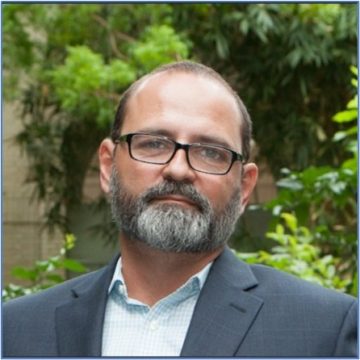
Roberto A. VIQUEIRA RÍOS, MS
Executive Director
Protectores de Cuencas, Inc.
Robert Viqueira is the founder and executive director of the non-governmental and non-profit organization, Protectores de Cuencas, Inc. Roberto has served as coordinator of a multi-sector effort between government agencies and private entities focused on the management of the Río Loco watershed, located in the southwestern region of Puerto Rico, under the US Coral Reef Task Force Watershed Partnership Initiative. In that capacity and through this collaborative effort, he helped lead the investment of more than seven million dollars in initiatives aimed at reducing the rate of soil erosion, sedimentation, and the discharge of pollutants into Guánica Bay.
Since then, Protectores de Cuenca has expanded its offerings and projects to eight other watersheds on the PR’s main island and the island municipalities of Culebra and Vieques. In the latter municipality, he was in charge of a project to control soil erosion and sedimentation in the Mosquito Bay Nature Reserve, in order to protect the bioluminescence of this extraordinary natural and tourist area. He has also designed and implemented other projects to promote shoreline stabilization, beach restoration, runoff management through bioengineering practices. Thanks to these efforts, he was recognized by the National Oceanic and Atmospheric Administration (NOAA) with the National Wetland Award in 2016.
E-mail: [email protected]
Web: https://www.protectoresdecuencas.org/
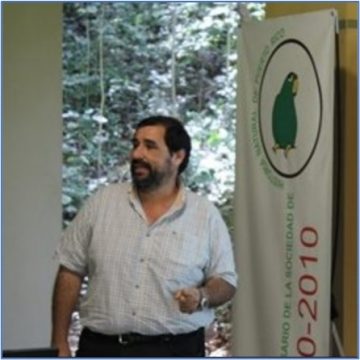
Edgardo GONZÁLEZ GONZÁLEZ, MF
Executive Director
Center for Landscape Conservation
Edgardo González completed his bachelor’s degree in biology from the University of Puerto Rico at Río Piedras and studied forestry at Yale University’s School of Forestry and Environmental Studies (today Yale School of the Environment) where he completed a master’s degree in forest management and conducted doctoral studies. He worked for 21 years in the Department of Natural and Environmental Resources where he became the director of the Forest Service Bureau and served as State Forester for five years participating in the National Association of Forest Directors where he came to hold positions on the board of the southern region (Southern Group of State Foresters).
In 2009 he participated in the integration of the Center for Landscape Conservation, a non-governmental organization focused on the conservation and management of natural resources and forest systems at the landscape level. He has developed consulting projects in forestry practices working and collaborating with federal and state agencies and other organizations. As part of its activities, he is a member of the International Organization of Tropical Foresters and part of the board of directors of the Puerto Rico chapter, a member of the American Society of Foresters, collaborates on boards of other organizations and has collaborated with the Latin American Network of Model Forests.
E-mail: [email protected]
Website: https://www.conpaisaje.org
Keynote Speaker

Tim DEKKER, PhD, PE
President
LimnoTech
Tim Dekker, PHD, PE, is the President of LimnoTech. Tim is an Environmental and Water Resources Engineer with expertise in the river, lake, and estuary remediation and restoration. Tim has led scientific studies and technical projects in natural and urban water systems throughout North America, describing the dynamics of surface water, sediments, and groundwater systems; analyzing and mitigating the effects of urban flooding, analyzing contaminant fate and transport; and applying contaminant forensic techniques to understand the history of contaminated sites. He has contributed to many successful national design competitions and projects focusing on the restoration and revitalization of urban waterfronts and works around the United States and Canada to advance the science and practice of urban water management. Tim works at LimnoTech’s Corporate Headquarters in Ann Arbor, Michigan.
E-mail: [email protected]
Web: https://www.limno.com/team/tim-dekker-ph-d-p-e/
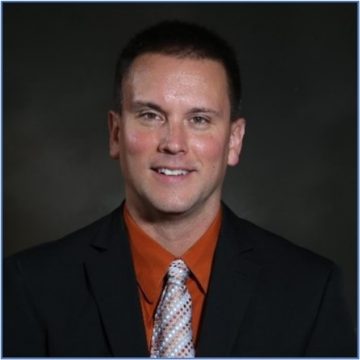
Christopher HARING, PhD, PG, CFM
Physical Scientist Researcher, Leader of River Chapters of Engineering with Nature
USACE Environmental Research and Development Center (ERDC)
Dr. Haring is a Research Physical Scientist in the River Engineering Branch of the Coastal Hydraulics Laboratory-Engineering Research & Development Center (ERDC). His responsibilities include leading research and development in water resource studies including river engineering and mechanics, geomorphology, sediment management, watershed assessments and USACE’s Engineering With Nature® initiative. His current research is focused on developing a restoration manual to provide updated guidance on inland fluvial applications for Engineering with Nature®. Another research focus is the development of FluvialGeomorph, a watershed assessment tool that identifies EWN-type natural channel characteristics and maps potential areas of instability within the channel reach.
E-mail: [email protected]
Web: https://ewn.erdc.dren.mil/?page_id=514
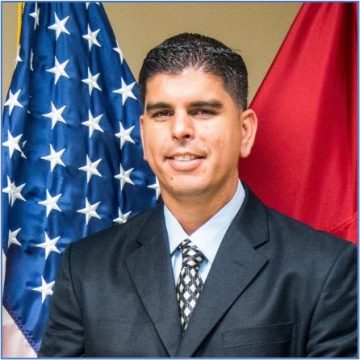
Wilmel VARELA ORTIZ, PE, MS
Resident Engineer, COnstruction Division
USACE, Jacksonville District
Mr. Wilmel Varela-Ortiz is the Resident Engineer for Northern Puerto Rico and serves as Administrative Contracting Officer for several major flood risk reduction construction contracts throughout the island. He also supports other offices that manage military construction and international/interagency support construction projects in Puerto Rico and the U.S. Virgin Islands. In addition, Mr. Varela-Ortiz was the leader of the local USACE first responder team immediately after the arrival of Hurricane Maria, and continues to support Emergency Operations in Puerto Rico, supervising emergency repairs to dams and levees.
Ing. Varela-Ortiz received the Commander’s Award for Civil Service for his exceptional performance during the preparation, response and recovery of Hurricane Maria. In 2018, he was voted the Jacksonville District “Engineer of the Year” by his peers, and he has received many other honors from the USACE and its Engineering Research and Development Center. Mr. Varela-Ortiz frequently mentors young engineers, scientists, and students, guiding them on construction site visits to show them how engineering concepts turn into real projects.
He studied Civil Engineering at the University of Puerto Rico, Mayagüez, where he received a bachelor’s degree and won the Etienne Totti Award for Best Student in his department. He completed his master’s degree in the same discipline. While earning his master’s degree, he was selected to attend a summer program at the Army Engineer Research and Development Center (ERDC). He excelled at the ERDC and was offered a permanent position as a Research Civil Engineer at the Geotechnics and Structures Laboratory, where he has risen steadily ever since.
E-mail: [email protected]
Web: http://technica-magazine.com/wilamel-varelaortiz
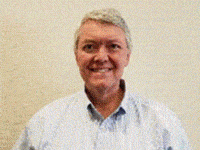
Burton C. Suedel, Ph.D.
Research Biologist
U.S. Army Engineer Research and Development Center
Dr. Suedel is a research biologist at the U.S. Army Corps of Engineers (USACE) Engineer Research and Development Center, Environmental Laboratory in Vicksburg, Mississippi. He obtained his bachelor’s degree in biology and master’s degree in biology from the University of North Texas, and his Ph.D. in biological sciences from the University of Mississippi. His research interests include investigating ways in which sustainable environmental, social, and economic benefits can be incorporated into waterborne transport infrastructure planning. He has received international recognition for applying EWN principles in practice at multiple USACE freshwater and marine coastal projects. He is the Principal U.S. representative to the PIANC (The World Association for Waterborne Transport Infrastructure) Environmental Commission and is the U.S. representative to PIANC Inland Navigation Commission Working Group 203 on Sustainable Inland Navigation.
E-mail: [email protected]
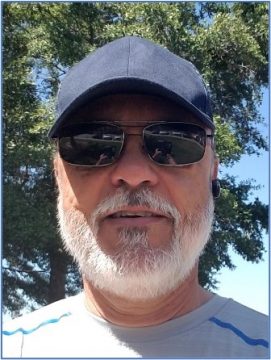
Jorge RIVERA SANTOS, PhD, PE
Director & Lead Researcher
PR Water Resources and Environmental Research Institute (PRWRERI)
Dr. Rivera-Santos is a professional civil engineer in Puerto Rico. He completed an MSCE in Sanitary Engineering at the Univ. of Puerto Rico in Mayagüez and a Ph.D. from the University of Colorado. He is a consultant to the Government of Puerto Rico and private engineering firms for more than 25 years. Research includes water resources and watershed management/modelling, assessment of pollutant sources, fate and transport. Dr. Rivera-Santos received the Fuller Award for the public relations section of the AWWA.
Dr. Rivera-Santos is currently the director of the Puerto Rico Environmental and Water Resources Research Institute (PRWRERI).
E-mail: [email protected]
Web: http://prwreri.uprm.edu/about.php
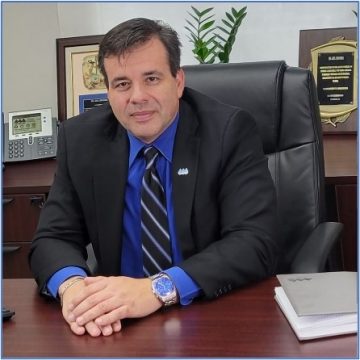
Joel LUGO ROSA, PE
Interim Executive Director of Infrastructure
PR Aqueducts and Sewage Authority
Engineer Joel Lugo Rosa was born in 1975 in the city of San Germán. In 1998 he obtained his bachelor’s degree in Civil Engineering from the Mayagüez University Campus of the UPR, his bachelor’s degree in 2002, and a postgraduate concentration in 2014 in Hydrological and Environmental Resources. In 1998, Mr. Lugo Rosa began working in the Department of Infrastructure of the Puerto Rico Aqueduct and Sewer Authority (AAA), as an engineer in training, reaching the position of Engineer III, after having obtained his bachelor’s degree in 2002. In 2006, held the position of Assistant Director, in charge of developing the Capital Improvement Plan for the fifteen (15) municipalities that make up the Western Region; with a budget of $70 million.
In 2010 he was appointed as Deputy Executive Director of the Western Region and in December 2011, Regional Executive Director. As Regional Director of the AAA, he assumed the tutelage of 620 employees; as well as its infrastructure, which includes: 16 filtration plants, nine sanitary sewer plants and a wide network of drinking water and sanitary sewer systems that provide service to 191,014 clients; residents in the 15 municipalities that surround the Region. Under the direction of Ing. Lugo Rosa and his team, the National Association of Clean Water Agencies awarded the Western Region a total of five gold and silver awards. In July 2021, he was appointed Executive Director of PRASA’s Department of Infrastructure and Project Management. He is now responsible for managing the Capital Improvements program, with the largest investment in AAA history amounting to 5.7 billion dollars.
Lugo Rosa is a member of the College of Engineers and Surveyors of Puerto Rico (CIAPR). A sports enthusiast, Mr. Lugo Rosa in 2013 and 2014, was a member of the Board of Directors of the Professional Basketball League of Los Atléticos de San Germán. He practices mountain biking.
E-mail: [email protected]
Web: https://past.acueductospr.com/NIVELES/index.html
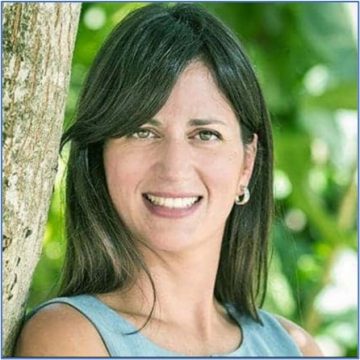
Brenda L. TORRES BARRETO, MS
Executive Director
San Juan Bay Estuary Program
Brenda is a professional in the field of sustainability. She has vast experience in environmental management, corporate social responsibility, and public policy development through empowerment and multi-sector partnerships. She has stood out in leadership positions in Puerto Rico and the United States. She is a LEED Accredited Professional for Green Building Development. She received her Bachelor’s Degree in Environmental Sciences from the University of Puerto Rico and a Master’s Degree in Environmental Administration from the Yale University School of Forestry and Environmental Studies. Brenda’s passion is managing non-profit organizations for the conservation and restoration of habitats.
She was part of the task force of the New York State Secretary of the Environment, where she provided advice to Governor Andrew Cuomo. She also directed the office of the Government of Puerto Rico for Federal Affairs in New York. In California, Brenda served as the Executive Director of the third largest chapter of the Audubon Society in this state, which serves 4,000 active members and more than 100 volunteers. Additionally, she worked as a Public Policy Analyst for the US Forest Service in Washington, DC.
At the end of 2016, Brenda returned to Puerto Rico with her family, to bring the best of her skills to the country. Brenda currently serves as the Executive Director of the San Juan Bay Estuary Program.
E-mail: [email protected]
Website: https://estuario.org/brenda-torres-barreto/
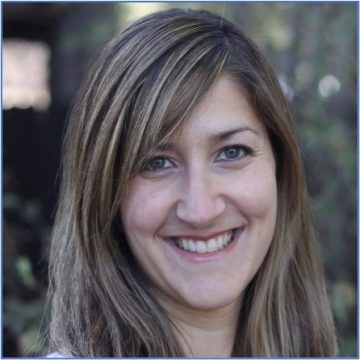
Tischa A. MUÑOZ ERICKSON, PhD
Social Sciences Researcher
US Forestal Service; Alliance for the Rio Piedras Basin
Tischa A Muñoz-Erickson is a Research Scientist at the International Institute of Tropical Forestry (IITF) of the U.S. Forest Service in Río Piedras, Puerto Rico. She earned her Ph.D. in Sustainability from Arizona State University in Tempe, Arizona. She currently directs the initiative known as San Juan ULTRA (Urban Long-Term Research Area) and is co-principal investigator for several National Science Foundation programs on transdisciplinary science, such as the Urban Resilience to Extreme Events Sustainability Research Network (UREx SRN) and the Social-Ecological-Technological Systems (SETS) Convergence project. Her current research specializes in the governance of urban sustainability and resilience, knowledge systems and networks, and the development of climate change adaptation scenarios and solutions, such as nature-based solutions. She has published over 40 journal articles and academic reports and has contributed to two books entitled Designing Knowledge and Resilient Urban Futures. Tischa contributes to several global initiatives that seek to link scientific knowledge to decision-making on adaptation and resilience to climate change, including the UN’s Future Earth, the Fifth National Climate Assessment (NCA5), and the IPCC WGII Chapter 6 Assessment Report.
Her education includes a BA in Environmental Studies from Prescott College, 1999, an MA in Environmental Science and Policy, Northern Arizona University, 2004, and a PhD in Sustainability from Arizona State University, 2012.
E-mail: [email protected]
Web: https://www.fs.fed.us/research/people/profile.php?alias=tamunozerickson
Wednesday, March 9 — Pre-symposium field trip to the Río Grande de Añasco Basin
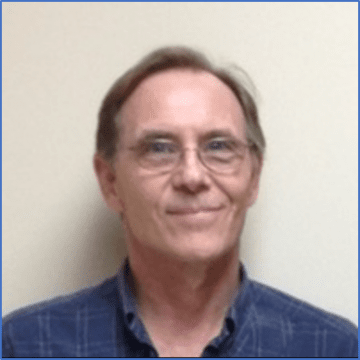
Eric W. HARMSEN, PhD, PE
Professor, Agricultural Engineering Dept.
University of Puerto Rico, Mayagüez Campus
Dr. Harmsen is a professor of Agricultural and Biosystems Engineering at the University of Puerto Rico, Mayagüez Campus. Dr. Harmsen’s research interests include measurement and modeling of all components of the hydrologic cycle, remote sensing of water and energy balance in the tropics, and agroclimatology. His areas of focus for the Enhancing Resilience of Island Communities (ERIC) project include modeling and analyzing the impacts of flooding on water and electrical infrastructure in the western watersheds of Puerto Rico.
E-mail: [email protected]
Web: http://agricultura.uprm.edu/ingenieria/
Friday, March 11 — Post-Symposium Workshop – Green Infrastructure for Watershed Management

Nitza AYALA-FONTÁNEZ
Hazard Mitigation Grant Program (HMGP) Grants Specialist
Federal Emergency Management Agency (FEMA)
Nitza Ayala-Fontánez is an Architect in Training, who graduated from the University of Puerto Rico with a Master’s in Architecture in 2015, after completing a bachelor’s degree in Environmental Design in 2013. Nitza had experience in diverse private-sector positions before she began working at FEMA in November 2017, after Hurricane Maria’s devastation on the Island. Working under Hazard Performance and Analysis (HPA) as a Hazard Mitigation Engineer and Architect Specialist (EASP) and Program 406 Specialist for three and a half years, she allocated almost $24 Million and obligated $16.6 Million in mitigation funding, focusing on projects for Health and Social Services, Education and Natural and Cultural Resources sectors. Since July 2021, she has been further collaborating in the recovery of Puerto Rico under Hazard Mitigation Grant Program (HMGP) as a Grants Specialist. While in this position, she is currently overseeing multiple Hazard Mitigation projects and actively participates of focused teams striving for a better, stronger, and more resilient infrastructure. Nitza was born and raised in Humacao, Puerto Rico.
E-Mail: [email protected]
Web: https://www.fema.gov/grants/mitigation/hazard-mitigation
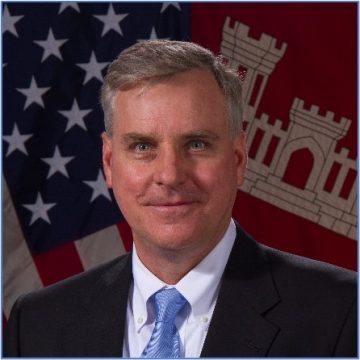
Patrick N. Deliman, Ph.D.
Technical Director, Environmental Engineering
USACE Engineering Research & Development Center (ERDC), Vicksburg, MS
Dr. Patrick Deliman is a Technical Director with thirty years of experience working for the Department of Defense (DoD), U. S. Army Corps of Engineers (USACE), Engineer Research and Development Center (ERDC). He specializes in the development of environmental sustainability research projects in the field of Environmental Engineering and Modeling. His leadership within the organization established the Applied Research Planning Support Center providing support to DoD installations world-wide in the development of resilient and sustainable master planning products. Additionally, he also serves as the Director and Program Manager for the Water Operations Technical Support (WOTS) Program. The WOTS Program has been instrumental in fielding Natural and Nature Based Solutions (NNBFs) for USACE Division and District civil works projects. The Program provides technology to solve water management and related environmental problems resulting from project operations related to environmental and water management issues.
E-Mail: [email protected]
Web: https://www.erdc.usace.army.mil/
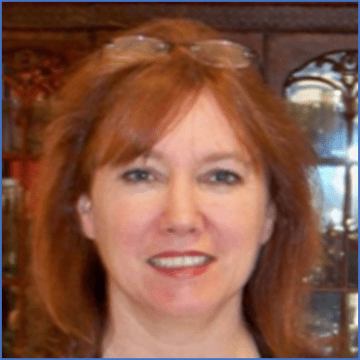
Rhonda E. FIELDS, Ph.D.
Research Landscape Architect,
Applied Research Planning Support Center, Environmental Lab
USACE Engineering Research & Development Center (ERDC), Fort Worth, TX
Dr. Rhonda Fields is a research landscape architect and program manager with the U.S. Army Corps of Engineers (USACE). She has served the USACE Regional Planning and Environmental Center (RPEC) and the Engineering Research and Development Center (ERDC), Environmental Lab (EL) the past six years following her tenure as Assistant Director of the Institute of Urban Studies and Adjunct Professor for the University of Texas at Arlington. Dr. Fields specializes in the nexus between sustainability, resilience, and climate change planning, leading practice- and research-based projects for civil and military customers and stakeholders. Amongst her many projects are USACE Lake Master Plans as well as Military Installation Energy and Water Resilience Plans (IEWP). She serves as subject matter expert, working with a wide variety of stakeholders and currently leads International & Interagency Services projects in Puerto Rico and the Dominican Republic for hurricane recovery, coastal resilience, and port development master planning.
Correo electrónico: [email protected]
Web: https://www.erdc.usace.army.mil/
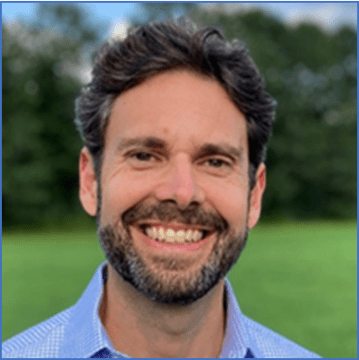
Dave HAMPTON, RA
Senior Resiliency and Climate Adaptation Planner
LimnoTech – U.S. Army Corps of Engineers (USACE) Engineering with Nature (EWN)® Support Team, Boston, MA, USA
Dave Hampton, RA, is a Senior Resiliency and Climate Adaptation Planner with LimnoTech and has twenty-five years of experience as a planner and architect, ten of those in Chicago. As a Latino practitioner, fluent in Spanish, Dave has prioritized helping communities of color and other at-risk populations. His interests in those community include producing implementation blueprints, and developing multi-hazard, resilient coastal and shoreline solutions. He co-leads LimnoTech’s USACE ERDC Engineering with Nature (EWN) technical and programmatic support to help advance EWN science and engineering practices. This includes mainstreaming nature-based solutions and natural / nature-based features (NNBF) for climate change resilience for critical infrastructure. Other projects have included consulting support to U.S. cities such as the towns of Fairhaven and Nahant, Massachusetts. Specifically, he provided planning support via the State’s Municipal Vulnerability Preparedness (MVP) program and county climate action planning processes that included Prince George’s and Fairfax Counties. His international post-disaster recovery and long-term development projects include multilateral development bank-funded support to national government climate resilience and adaptation planning efforts in island contexts. This support included resilient coastal and shoreline solutions for government technical staff in the Marshall Islands; leading strategic planning and post-hurricane recovery efforts in the Caribbean for the United Nations and aiding in Haiti’s post-earthquake recovery. He is a member of the American Society of Adaptation Professionals, a graduate of Virginia Tech and the Harvard Graduate School of Design and is a registered architect (RA).
E-Mail: [email protected]
Web: https://www.limno.com/team/dave-hampton/
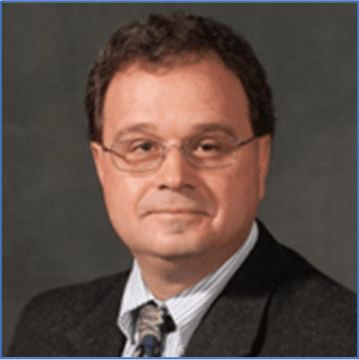
Billy E. Johnson, PhD
Senior Scientist
LimnoTech Inc., Vicksburg, MS
Billy E. Johnson, PHD, PE, D.WRE, F.ASCE, is a Senior Scientist at LimnoTech with broad expertise in Water Resources, including successful leadership of projects involving the development and application of sediment, nutrient, contaminant, and riparian vegetation simulation modules for civil works and military projects. These modules have been integrated with a variety of U.S. Army Corps of Engineers (USACE) hydraulic and hydrologic modeling systems. He has over 35 years’ experience as a research civil engineer, educator, and consultant for projects across the U.S. In addition, he has been involved in developing U.S. Army Installation Energy and Water Plans (IEWP), Flood Mapping and Mitigation Plans for Overseas DoD Installations in data poor regions, and Low Impact Development (LID)/Nature Based Features projects for DoD installations. Billy previously served as a senior researcher at the U.S. Army Engineer Research and Development Center (ERDC), Environmental Laboratory (EL). In addition to working for EL, he also worked for the ERDC Coastal and Hydraulics Laboratory (CHL), and the Memphis District USACE. He was an adjunct faculty member at Mississippi State University and served as an Associated Editor of the Journal for the American Water Resources Association (JAWRA). Billy currently resides and works in Vicksburg, MS.
E-Mail: [email protected]
Web: https://eu.limno.com/team/billy-johnson-phd-pe/
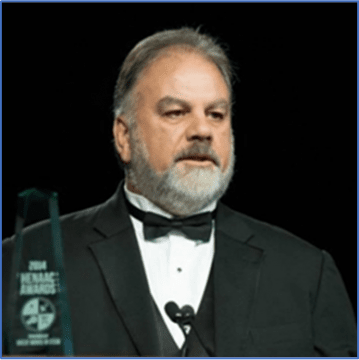
Carlos E RUIZ, PhD
Research Civil Engineer
USACE Engineering Research & Development Center (ERDC), Waterways Experiment Station
Dr. Ruiz has been a Research Civil Engineer with the U.S. Army Engineering Research and Development Center (ERDC) at the Waterways Experiment Station since 1989. He is responsible for developing mathematical models for water quality and contaminant transport and has worked in a variety of problems regarding the potential impact of nutrients, explosives, and priority pollutants. The applications of these models are utilized for planning and engineering applications to minimize environmental impacts as well as maximize potential for environmental sustainability. Specific research areas include Effects of Climate Change, Low Impact Development (LID) Net Zero (Energy, Water, Waste), Non-Point Source Pollution, Dredged Material Management, and Sediment Remediation. He has also developed and modified computer models to assess and quantify the impact of non-point source pollution from agricultural fields as part of the USACE’s TMDL program in cooperation with the EPA; the impact of non-point source pollution from ranges for Fort Benning as part of a SERDP proposal; and incorporating algorithms to quantify biological processes in LID. The models were incorporated into the Watershed Modeling System (WMS) software to evaluate contaminant transport from field to the aquatic environment. He was a key component of the ERDC team that developed models for the Groundwater Modeling System (GMS), used to evaluate groundwater contamination and remediation.
He modified and further developed RECOVERY, a screening model for addressing the impact of contaminated sediment on surface waters and established the Sediment Research Laboratory in 2007 to develop algorithms in the laboratory to be incorporated into cap design mathematical models and test proof of concept remediation technologies. Dr. Ruiz has been involved in over ten national and international contaminated sediment capping projects. Dr. Ruiz served as an adjunct faculty member at The University of Mississippi, Mississippi State University, the University of Puerto Rico at Mayagüez.
E-Mail: [email protected]
Web: https://ewn.erdc.dren.mil/?page_id=514
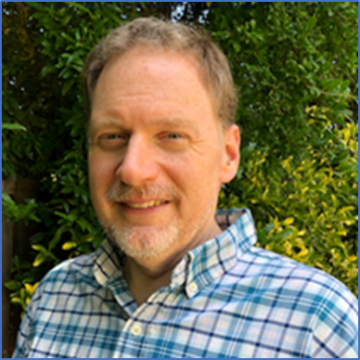
Todd E. STEISSBERG, Ph.D., P.E.
Research Environmental Engineer
Environmental Laboratory, USACE Engineering Research & Development Center (ERDC), Davis, CA
Dr. Todd Steissberg is a Research Environmental Engineer at the Department of Defense (DoD), U.S. Army Corps of Engineers (USACE), Engineer Research and Development Center (ERDC). He is leading the Environmental Systems Modeling Team, developing water quality and vegetation modeling and analysis capabilities for river, reservoir, and watershed models. These are being used to solve complex watershed-scale water quality and aquatic ecosystem restoration problems. He also develops and applies geospatial tools for ecosystem and watershed assessments. A major goal of these research and development activities is to provide interdisciplinary teams with the tools needed to effectively perform integrated watershed-scale environmental impact assessments, improve real-time water quality management, and to design and implement ecosystem restoration projects that incorporate natural and nature-based features to improve the health and resiliency of ecosystems and communities.
E-Mail: [email protected]
Web: https://www.erdc.usace.army.mil/
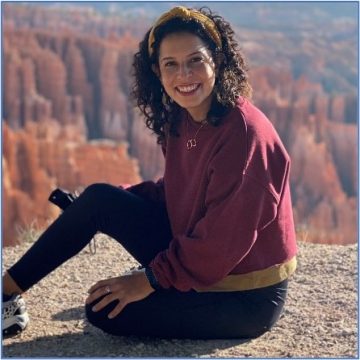
Kathia SÁNCHEZ-RIOS
Hazard Mitigation Grant Program (HMGP) Grants Specialist
Federal Emergency Management Agency (FEMA)
Kathia Sánchez Rios was born in San Juan, Puerto Rico and is an Architect in Training graduated from the University of Puerto Rico, Río Piedras Campus. She has a Master’s Degree in Architecture and a Bachelor’s Degree in Environmental Design. In 2015, she started working on housing projects and office interior design in the private sector. After the impact of Hurricane Maria, she was presented with the opportunity to work as an Emergency Management Specialist in the Hazard Mitigation Division. During the recovery process, she worked hand in hand with hospitals, non-profit organizations, schools, among other public service areas, to identify strategies to reduce and eliminate risks after the passage of Hurricane Maria. She prepared and reviewed over 500 Mitigation Proposals that represent more than 100 million dollars awarded for the reconstruction of Puerto Rico. Currently, she is in the role of Group Leader in the Risk Mitigation division and is one of the points of contact for the Nature-Based Solutions Initiative. Kathia’s main goal is to guide applicants and educate them to achieve more resilient projects.
E-Mail: [email protected]
Web: https://www.fema.gov/grants/mitigation/hazard-mitigation
Pedro SANTA
Blue-Green Infrastructure Specialist
San Juan Bay Estuary Program (Estuario)
Pedro Santa specializes in blue-green infrastructure and climate adaptation in urban settings. He has over 14+ years of transdisciplinary experience in design, planning, engineering, and water management, with an additional eight years of education & research experience.
During his graduate studies at Harvard University, Pedro focused his research on water, ecology, and urbanism. While still a student at Harvard in 2009, he founded Urban Hydrologics, a leadership organization for stormwater management, urban resilience, and nature-based solutions.
Pedro has worked with diverse teams in the USA, Europe, Asia, and the Americas throughout his career, spearheading winning proposals, leading design-engineering teams, blue-green infrastructure guidelines, and holistic-stormwater masterplans.
During the last decade, from 2011 to 2021, Pedro Santa’s experience has been focused on Singapore to gain advanced Engineering with Nature and transdisciplinary experiences that can serve as a compatible case study for climate adaptation efforts in Puerto Rico.
E-mail: [email protected]
Agendas
Activity: Pre-Symposium Field Trip
Date: Wednesday, March 9, 2022
Time: 7:45 am – 4:00 pm
Location: Añasco River Watershed
Stops:
- 7:45 am: Registration and vaccination confirmation– University of Puerto Rico, Civil Engineering and Surveying Dept
- 8:30 am: Field Trip begins (215097, -67.139374):
- Presenter # 1: Prof. Ismael Pagán-Trinidad, Director, CRC (Brief introduction)
- Presenter # 2: Dr. Patrick N. Deliman, Patrick, USACE (Brief introduction)
[Trip from UPR-Mayagüez to Ajíes Dam, 25 minutes approximately]
- Ajíes Dam (18.298161°, -67.137101°):
- Presenter #1: Mr. Luis A. Cruz-Arroyo, NRCS Caribbean Area Director
- Presenter # 2: Eng. Yilia Baucage-Bou, NRCS Caribbean Area Engineer
- Presenter # 3: Dr. Eric Harmsen, UPR-M Researcher (Description of the Añasco River Watershed and his research)
[Trip from Ajíes Dam to Ovejas Bridge, 10 minutes approximately]
- Ovejas Bridge (18.272885, -67.126913):
- Presenter: Prof. Ismael Pagán-Trinidad, CRC
[Trip from Ovejas Bridge to PRASA Water Intake, 5 minutes approximately]
- PR Aqueduct & Sewer Authority Water Intake (18.264000°, -67.133800°):
- Presenter # 1: Eng. Glorymar Cortés-Arreizaga, Infrastructure Department, PRASA
- Presenter # 2: Dr. Walter F. Silva-Araya, Director, PRWRERI
[Trip from PRASA Water Intake to Western Plaza, 22 minutes approximately]
- Lunch at Western Plaza, Mayagüez
[Trip from Western Plaza to Boquilla and El Seco communities, 6 minutes approximately]
- La Boquilla Village and El Seco Community (18.251226°, -67.176495°):
- Presenter: Prof. Ismael Pagán-Trinidad, CRC
[Trip from La Boquilla and El Seco to Paola Fishery, 5 minutes approximately]
- Paola Fishery (18.244504°, -67.173714°):
- Presenter: Prof. Ismael Pagán-Trinidad, CRC
[Trip from Paola Fishery to UPR-Mayagüez, 15 minutes approximately]
Additional Information:
- Google Maps link to the Department of Engineering and Surveying at UPR Mayagüez parking lot: https://goo.gl/maps/ro93wVa7MfRdcgRD9.
- Please bring proof of vaccination (two doses and booster) to register for the event.
- Please Schedule your whole calendar day for the field trip since we are planning to be back by 4:00 pm but the field trip could take longer.
- Most of those registered will travel in the bus, but due to space restrictions, some will be asked to follow along in their private vehicles.
Bring:
- Hand disinfectant
- Mosquito repellent
- Sunblock
- Cap or hat to protect against the sun
- Appropriate attire for a field trip
- Appropriate shoes for a field trip
- Umbrela
- Lunch money
- Snacks
- Mask
- Water
- 7:30 am – 8:20 am [50 min.]: Registration
- 8:20 am – 8:30 am [10 min]: Welcome (Prof. Pagán-Trinidad from CRC & Dr. García-Bermúdez from USFWS)
- 8:30 am – 10:30 am [2:00 hrs.]: Reports from agencies and NGOs (Moderator: Ela M. Cruz-Nazario)
- 8:30 am: Dr. Miguel García-Bermúdez, USFWS Caribbean Ecological Services Field Office
- 8:50 am: Mr. Luis A. Cruz-Arroyo & Mr. Mario Rodríguez, NRCS Caribbean Area
- 9:10 am: Mr. Alberto Mercado, The Nature Conservancy
- 9:30 am: Walter F. Silva-Araya, Puerto Rico Water Resources and Environmental Research Institute (PRWRERI)
- 9:50 am: Dr. Jorge Bauzá, San Juan Bay Estuary Program
- 10:10 am: Prof. Ismael Pagán-Trinidad, Coastal Resilience Center UPR-M
- 10:30 am – 10:45 am [15 min.]: Break # 1
- 10:45 am – 12:30 pm [1:45 min.]: Planning and Management Panel (Moderator: Alberto Mercado, TNC)
- Raul Santini-Rivera, Department of Natural and Environmental Resources (DNER)
- Yasiel A. Figueroa-Sánchez, Watershed Protectors
- Edgardo González-González, Center for Landscape Conservation
- 12:30 pm – 1:15 pm [45 min.]: Lunch (in the Auditorium)
- 1:30 pm – 2:30 pm [1:00 hr.]: Keynote speakers from the US Corps of Engineers
- Keynote Speaker: Green Infrastructure & Low Impact Development in Practice – Dr. Tim Dekker (LimnoTech)
- USACE ERDC – Nature and Natural Based Features Efforts – Dr. Chris Haring, Jackson USACE-ERDC
- Questions and answers session
- 2:30 pm – 2:40 pm [10 min.]: Break # 2
- 2:40 pm – 4:25 pm [1:45 min.]: Public Policy Panel (Moderator: Iván Llerandi-Román)
- Jorge Rivera-Santos, PR Water and Environment Research Institute (PRWRERI)
- Glorymar Cortés-Areizaga, Infrastructure Director & Eng. Ann Ventura-Payán, Planning Director, Puerto Rico Aqueduct and Sewer Authority (AAA)
- , Puerto Rico Aqueduct and Sewer Authority (PRASA)
- Brenda Torres-Barreto, San Juan Bay Estuary Program
- Tischa Muñoz-Erickson, Alliance for the Río Piedras Watershed
- 4:40 pm – 5:00 pm [10 min.]: Final comments – Prof. Ismael Pagán-Trinidad
Purpose: The purpose of the workshop is to assemble subject matter experts to conceptualize research and development geared towards identifying tropical island EWN-GI-LID design questions that will lead to demonstration projects and research strategies to evaluate outcomes for designing, constructing, and integrating these types of features to assist in minimizing environmental damage from storm events. We will review prior island best management practice designs and methods with a focus on projects using Natural and Nature-Based Feature (NNBF) construction methods consistent with EWN principles. Alternative designs and construction methods will be identified and discussed in context with integration with existing conventional construction techniques. The results of the workshop will be documented in a Proceedings Report that will be published with the support of the US Army Corps of Engineers Water Operations Technical Support (WOTS), Dredging Operations Technical Support (DOTS), and EWN Programs.
Objectives:
By the close of the workshop, participants will:
- Identify technical design successes and lessons learned from prior tropical island design projects for basin sediment management.
- Discuss opportunities and challenges of candidate island design techniques using EWN-GI-LID technologies.
- Identify those island EWN-GI-LID design techniques that could be implemented for basin sediment management with unique short time of concentration limitations.
- Identify design techniques that could be used for managing sediment removal in drinking water reservoirs to recover design capacity while promoting EWN-GI-LID techniques.
Participants:
UPRM – University of Puerto Rico Mayaguez
FEMA – Federal Emergency Management Agency
NRCS – Natural Resources Conservation Service
USACE: US Army Corps of Engineers
|
TIME |
CONTENT/ACTIVITIES |
MATERIALS |
|
8:30 – 8:50 |
Facilitator login and setup · Assign co-hosts · Upload any shared documents · Assign participant privileges · Record |
All ppt slides or other documents to be shared |
|
8:50 – 9:00 |
Participant login and setup |
|
|
9:00 – 9:30 |
Welcome and Introduction Meeting opening – Ismael Pagan & Carlos Ruiz Welcome participants, review workshop purpose and objectives Pat Deliman & Burton Suedel – Review Agenda Pat Deliman & Burton Suedel – Review How to Engage Facilitate participant Introductions. Ask people to share their name, organization, and role. |
Opening slide: Welcome/Workshop title Slide: Purpose, Objectives Slide: Agenda Slide: How to engage Slide: relevant experience |
|
9:30 – 10:30 |
Setting the Stage
Defining Island Basin Sediment Transport: – Roberto Viqueira, Protectores de Cuencas – Pedro Santa, Blue-Green Infrastructure Specialist, San Juan Bay Estuary Program Speakers: Water Operations EWN-GI-LID: Speaker – Chris Haring Dredge Operations EWN-GI-LID: Speaker – Burton Suedel |
20 min for each speaker |
|
10:30 – 11:00 |
Defining the System Opportunities Speaker – Billy Johnson/Todd Steissberg · Examples of recent success stories |
Nitza Ayala-Fontánez FEMA Hazard Mitigation |
|
11:00 – 11:15 |
BREAK |
|
|
11:15 – 11:45 |
Prior Experience with Island EWN-GI-LID Construction Speaker: Tim Decker & Dave Hampton Q&A (5 min) |
25 min for speaker + 5 min for Q&A |
|
11:45 – 12:15 |
Limitations/Problems with prior projects
Discuss Participants take 5 minutes to jot down their notes/ideas on each of the aspects below. What limitations or challenges have occurred with prior projects, and what are solutions that can overcome these challenges? · Construction material · Alternative equipment · Feature stability · Material stability · Operation and Maintenance · Property ownership · Social and economic impacts Facilitator will guide discussion on each subtopic. This discussion designed to prepare for the breakout session after lunch.
|
|
|
12:15 – 1:00 |
LUNCH |
|
|
|
||
|
1:00 – 2:00 |
Breakout Session: Brainstorm new design measures: Challenges and Opportunities
Purpose: The objective of this breakout session is to identify specific project opportunities for incorporating EWN principles and practice into GI-LID project development and operations. How can EWN principles and practices be integrated into both existing and new projects and operations? What do you consider to be the key aspects or elements to implement these projects? What are key next steps that should be taken to advance the project(s)?
Leaders will divide participants into two breakout groups. Group 1 – Pat Deliman (to designate note-taker) and Group 2 – Burton Suedel (to designate note-taker) will each lead a breakout. As the group is brainstorming ideas Rhonda Fields, TBD (landscape architects) will sketch out the breakout group ideas to help visualize.
· Group 1 – Water Operation Activities · Group 2 – Dredging Operation Activities
|
|
|
2:00 – 2:15 |
BREAK |
|
|
2:15 – 3:00 |
Report out Share Group 1 (Pat Deliman) will share for 20 minutes Group 2 (Burton Suedel) will share for 20 minutes
|
|
|
5 minute Energizer??? TBD based on energy (or lack of) levels of the group |
||
|
3:15 – 4:15 |
Brainstorm new research and development opportunities and projects for EWN-GI-LID related to island basin sediment management
Discuss · Conventional Current State of the Art · Hybrid Construction with NNBF · Innovative Future Concepts |
|
|
4:15 – 4:30 |
Summary and Review, Next Steps Activity: Review objectives – did we get there? Participants will use annotation features to rank how well objectives were met Activity: I like, I wish exercise – participants provide feedback in the chat. What did they like about the workshop? What worked well? Conversely, what could have been improved? What do they wish had happened? Deliman/Suedel share next steps – what will be done with the information generated? A proceedings report will be generated to publish the participants, presentations, discussions, and results of the workshop as an USACE ERDC Technical Report jointly published with the UPR, etc.
|
|
|
4:30 |
Adjourn |
Presentations
Reports from agencies and NGOs
- Dr. Miguel García-Bermúdez, USFWS Caribbean Ecological Services Field Office (PDF)
- Mr. Luis A. Cruz-Arroyo & Mario Rodríguez, NRCS Caribbean Area (PDF)
- Mr. Alberto Mercado, The Nature Conservancy (PDF)
- Dr. Walter F. Silva-Araya, Puerto Rico Water Resources and Environmental Research Institute (PRWRERI) (PDF)
- Dr. Jorge Bauzá, San Juan Bay Estuary Program (PDF)
- Prof. Ismael Pagán-Trinidad, Coastal Resilience Center UPR-M (PDF)
Planning and Management Panel
Keynote speakers from the US Corps of Engineers
- Keynote Speaker: Green Infrastructure & Low Impact Development in Practice – Dr. Tim Dekker (LimnoTech) (PDF)
- Overview of USACE – Jacksonville & ERDC regarding ongoing Water Projects in Puerto Rico: Dr. Chris Haring, Jackson USACE-ERDC (Available soon)
Public Policy Panel
- Dr. Jorge Rivera-Santos, PR Water and Environment Research Institute (PRWRERI) (PDF)
- Eng. Glorymar Cortés-Areizaga, Infrastructure Director & Eng. Ann Ventura-Payán, Planning Director, Puerto Rico Aqueduct and Sewer Authority (PRASA) (Available soon)
- Mrs. Brenda Torres-Barreto, San Juan Bay Estuary Program (PDF)
- Dr. Tischa Muñoz-Erickson, Alliance for the Río Piedras Watershed (Available soon)
- US Fish & Wildlife Service
- Coastal Resilience Center
- Puerto Rico Water Resources and Environmental Research Institute
- San Juan Bay Estuary Program
- Center for Landscape Conservation
- The Nature Conservancy — Puerto Rico
- Natural Resources Conservation Center (NRCS) — Caribbean Area
- Puerto Rico Department of Natural & Environmental Resources
Previous Symposiums
- 1st Puerto Rico River Basin Symposium — October 11, 2019; UPR Ponce
- 2nd Puerto Rico River Basin Symposium — December 10, 2020; Virtual Symposium

